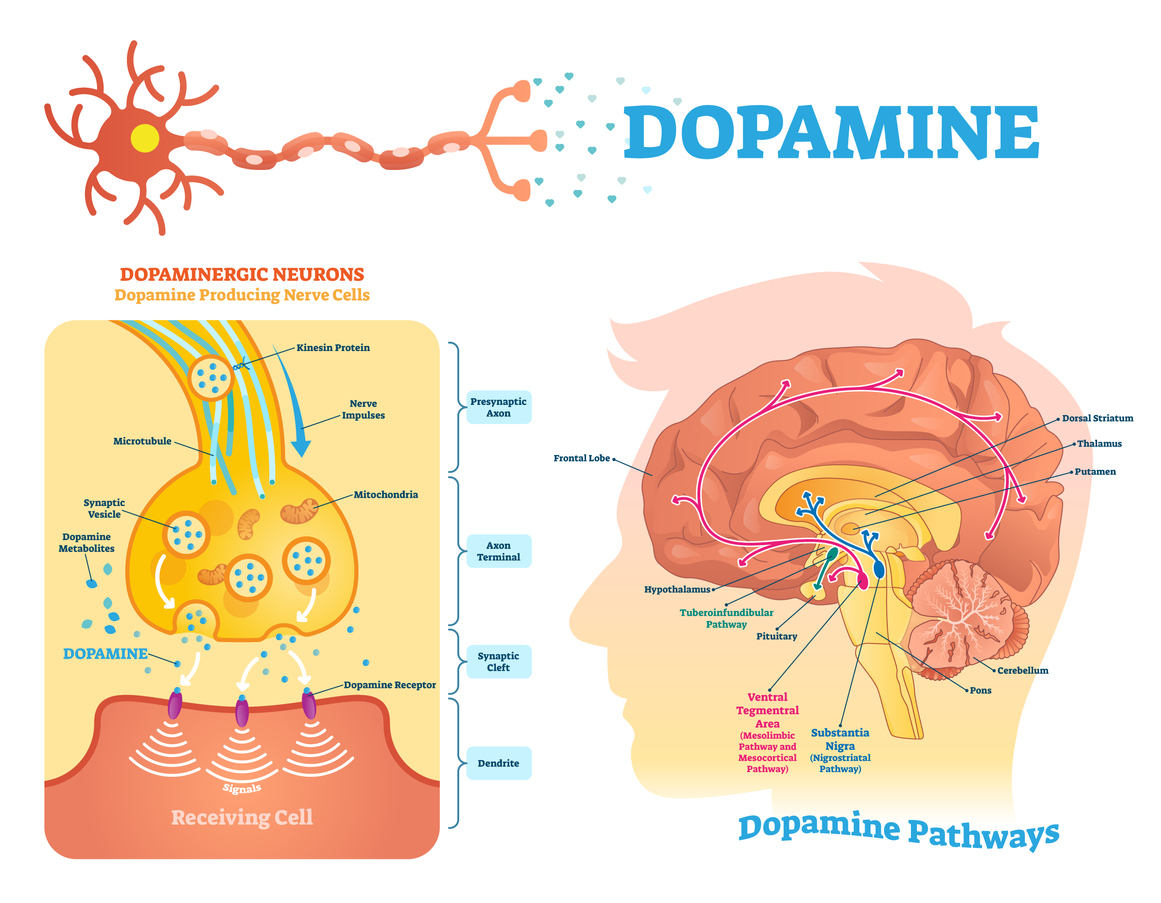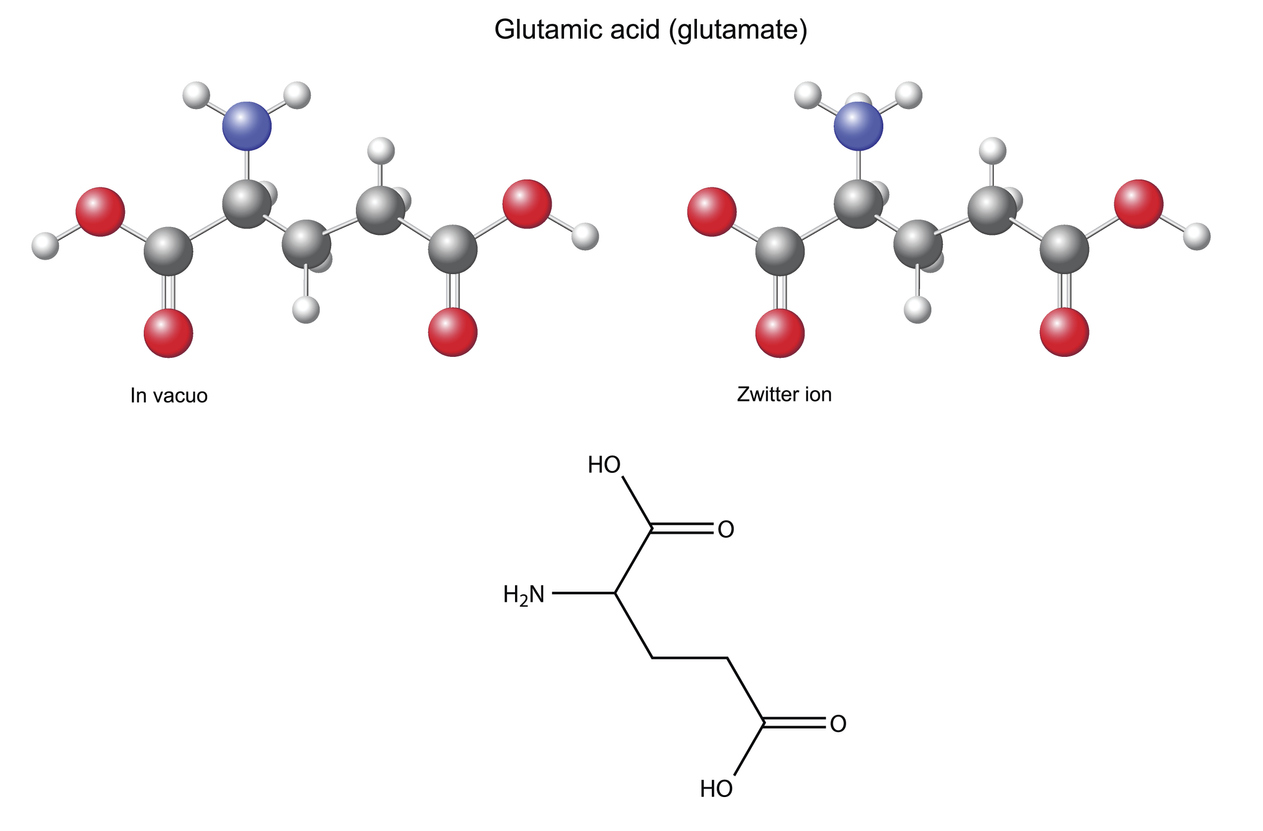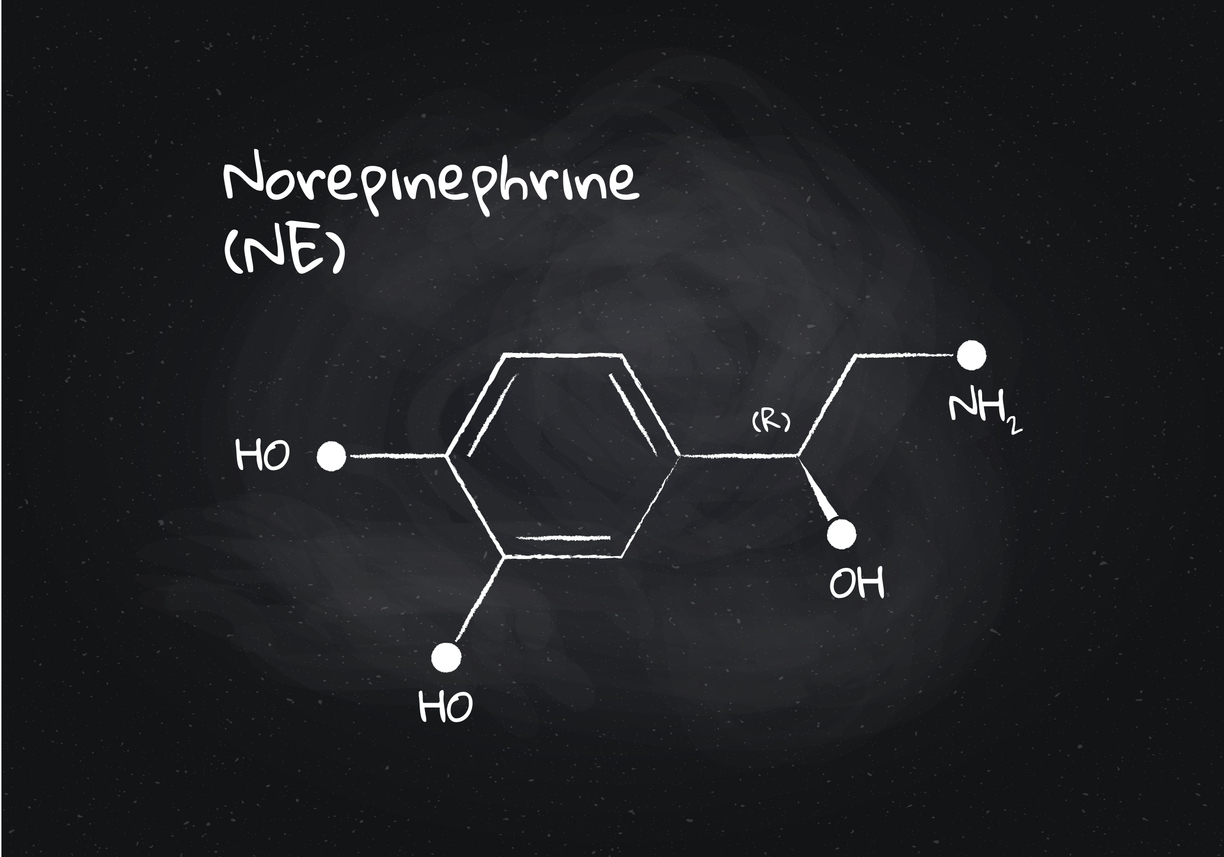Beyond the physical aspects of fitness and nutrition, there’s a lot that happens in the brain that helps regulate your mood. Have you ever wondered why you’re in such a good mood after a workout or why you sleep like a baby after a hard day’s work? It’s because the factory that is your body has help from things called neurotransmitters. These are things inside the body that send signals to various other parts of your body in order to allow you to feel emotions or react to stress. So let’s take a light look at the science of what’s going on in your body when you’re chomping on Quest bars or hitting the gym, shall we?
SEROTONIN
Serotonin is the neurotransmitter that most people are familiar with. It regulates sleep, arousal, appetite, digestion, cognitive functions, emotions…pretty much everything you think or feel. So it’s a biggie.
If you’ve ever wondered by you feel differently on certain days than others, it’s because if heightened or decreased serotonin levels. On days when you feel “balanced” (emotionally, physically) it’s because you have a more focused, stable serotonin response. On days when you’re feeling more emotional, depressed or anxious, it’s because your serotonin levels are low. That’s not the only factor, mind you, but like all things in the body, healthy regulation of these systems are key to better mental and physical health. Too much serotonin and you can get the shivers, confusion, headaches, GI upset, high blood pressure…not so much fun. So how do you ensure proper regulation? Well, there’s no guarantee because the human mind is a beehive of activity and various chemical and electrical responses, but there are ways to increase production when you’re down.
Ways to increase Serotonin
Eat Food
This one’s easy. We all have to do it, and you’re reading a blog from a maker of food, so it’s Quest-adjacent! Particularly foods with high levels of tryptophan like eggs, cheeses and seeds & nuts are good bets when you’re looking to increase serotonin production.
Exercise
Hey, look at that, if you’re reading the Quest blog, chances are you’re already getting plenty of this! So keep doing what you’re doing.
Outdoor time
Magically, the sun can both damage and heal us. Damage via harmful UV rays and radiation and healing us by generating increased serotonin and Vitamin D production in the body. This is why there are greater numbers of people suffering from seasonal depression in areas that don’t get a lot of sunlight. Try to get at least 20 minutes if you can. And if you combine your exercise with outdoors time, that’s what we call two birds, one stone.
Eat more fiber and probiotics
Hey, hey, another Quest win here. Quest protein bars are a loaded with fiber, which can help fuel the production of healthy gut bacteria, which can, in turn, lead to increased serotonin production in your body. And here you thought you felt good after eating then because of the superior macros and incredible taste…There’s a bit of that too.
DOPAMINE
Dopamine is another pleasure chemical created in the brain transmitted across your nervous system. It helps regulate your ability to learn, to be motivated, your heart rate, sleep, pain response, movement and a ton of others. It’s pretty important. Like all of these neurochemicals, too much or too little dopamine can be detrimental to your health. Vastly increased levels can lead to schizophrenia, Parkinson’s, ADHD and even obesity and weight gain.
This is why battling for the “perfect body” or “ideal weight” can be so difficult for so many people. Added pressure from external sources such as friends, family or media in general can cause decreased dopamine response which could lead to depression…which can lead to increased weight gain. This is why it’s especially important for people to not body shame – even if you think your intentions are good, each body and brain are different. One person may naturally be a gifted as a visual thinker and learner while others are more statistical and analytical. That doesn’t mean one person is learning the wrong way and the other is learning the correct way, it’s just how their body and chemical makeup handle information processing. Much the same way with eating response, weight gain and relationship to exercise. Go at your own pace.
Best ways to increase dopamine levels
Sure, increased levels of dopamine can lead to serious health issues, but none of the methods here are going to cause you to suddenly become schizophrenic. Rather, this is more of a guide to increase serotonin production if you’re feeling slow or lethargic, especially when it comes to mood or learning response.
Eating protein
Well, well, well, once again, if you’re a Questie, you’re already doing the right things. Typically you’re looking for the amino acid Tyrosine. This is prevalent in foods like beef, eggs, soy, legumes, dairy and turkey. So if you’re feeling down, grab a Quest Bar and wait for the happiness to course through your body…okay, so maybe it doesn’t work exactly like that, but the great taste and nutrition are rewarding enough.
Increase probiotic consumption
Turns out the stomach controls a lot of the brain’s functions and chemical responses. Having a healthy supply and variation of gut bacteria helps regulate much of your neurotransmitter responses. And while we’re still only scratching the surface of the extent of the relationship between gut and brain functions, it’s always good to err on the side of thinking they’re inextricably linked and to treat them both with the same care and attention. This is why you get hangry, after all.
Regular Exercise
If you’re not seeing a common thread here between exercise, diet and mental health…um, there is! While rodent studies have successfully found a correlation between exercise and increased dopamine production, the response in humans has yet to be fully correlated. But with so many neurotransmitter chemicals being released from regular exercise, lean into that knowledge and try to get 20-30 minutes of sweating and increased heart rate in any way you can.
GLUTAMATE
Most common neurotransmitter, and one you won’t hear bandied about like the previous two. However, Glutamate is just as important when it comes to early brain development, cognition, memory and learning. Which is ironic, because the memory neurotransmitter is the one most people forget about (ba dum, tss).
Unlike the others mentioned, Glutamate lives in the brain and spine – however Glutamate is linked to metabolism. Specifically when it comes down to how dietary proteins are broken down into amino acids. As a chemical messenger it carries information to various parts of your brain.
Where it’s beneficial is as Glutamic Acid – this is when glutamate is converted into an amino acid which carries information across your synapses. Think of it as the transportation method for neuron transmission. But since Glutamate can be dangerous at high levels, it’s important that the neurons in your brain actually consume glutamate, which is what regulates the levels in your body.
Increased levels of Glutamate can lead to adverse conditions and illnesses like headache, heightened blood pressure, obesity and even increased sensitivity to pain or pain intolerance. So while it may sound cool to not have a pain response like some kind of superhero, it’s also linked to high anxiety, depression, stress and neurodegenerative diseases like Alzheimer’s or mental illness like bipolar disorder…bummer. Thankfully it’s able to be synthesized in the body, so you don’t need to seek it from external sources, but it is abundant in most protein-rich foods.
Ways to naturally regulate Glutamate levels
Simply existing – as mentioned your neurons consume Glutamate, so if your brain is functioning at its baseline, there’s no need to seek ways to regulate. However, if you do have excess levels of glutamate, try these other, more active, options.
Exercise!
See the pattern once again rear its head. We’re bipedal organisms designed to move, forage and build. So as much as our modern society tries to tether us to screens and vehicles, use those legs and limbs to get the blood flowing!
Drink Calming Teas
Drinking relaxing tea blends like chamomile, ginger teas and teas with taurine have beneficial effects to regulate glutamate levels. Long story short, these teas and supplements can stimulate GABA (Gamma aminobutyric acid – an amino acid that’s also a neurotransmitter/chemical messenger). GABA blocks or restricts Glutamate when there’s an excess of it in your body – which is what can cause stress or anxiety. So GABA keeps glutamate in check, so the next time you’re feeling anxious, you can blame GABA for not doing its job.
NOREPINEPHRINE
The last neurotransmitter we’ll look at is Norepinephrine – not only is it a neurotransmitter, it’s also a stress hormone. That means it affects mood, stress and concentration. So when you’re especially triggered or stressed out, that’s because your body is releasing higher levels of Norepinephrine. But just because it can signal these impulses doesn’t mean it’s all bad. It’s also what wakes you up and transmits your body’s intention to move. So when you’re exercising or moving around, that’s because of this neurotransmitter (among many others).
Overactive levels of Norepinephrine are what can trigger conditions like ADHD, so it’s important to keep levels in balance. If you’re feeling sluggish or lethargic, there are several natural ways to increase levels in your body…But I’m guessing you’re going to know what they are before I type them.
Eat Protein
It’s almost as if protein is essential for human existence (because it is!). You know you can always grab your favorite Quest snack when you’re feeling low energy, but meat, poultry and nuts are also a great source to up your levels.
Sleep
Finally, one that isn’t exercise! Sleep is the most vital function of the human body. It’s where your internal organs do the most work and acts as a hard reset for the mind and body. It’s also when you start to feel the effects of the next item on the list…
Exercise!
Once again, you can see that people who move regularly have a better regulated system in terms of neurotransmitters and mood. It’s vitally important to ensure you’re getting 20-30 minutes of increased heart rate for so many reasons. It helps work your pulmonary systems for better circulation and increased oxygen to the brain, which makes you more alert and aware. This can all be attributed to the neurotransmitters released in your body, and norepinephrine is just as important of the others.




